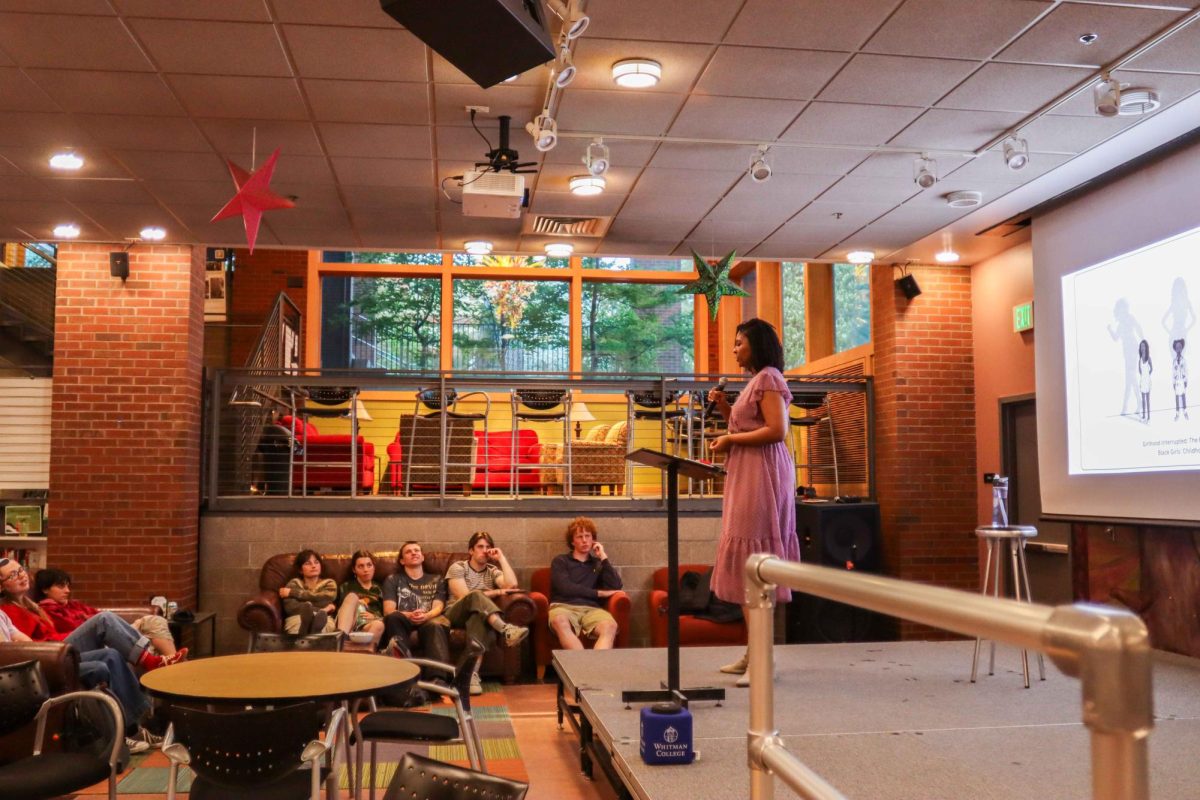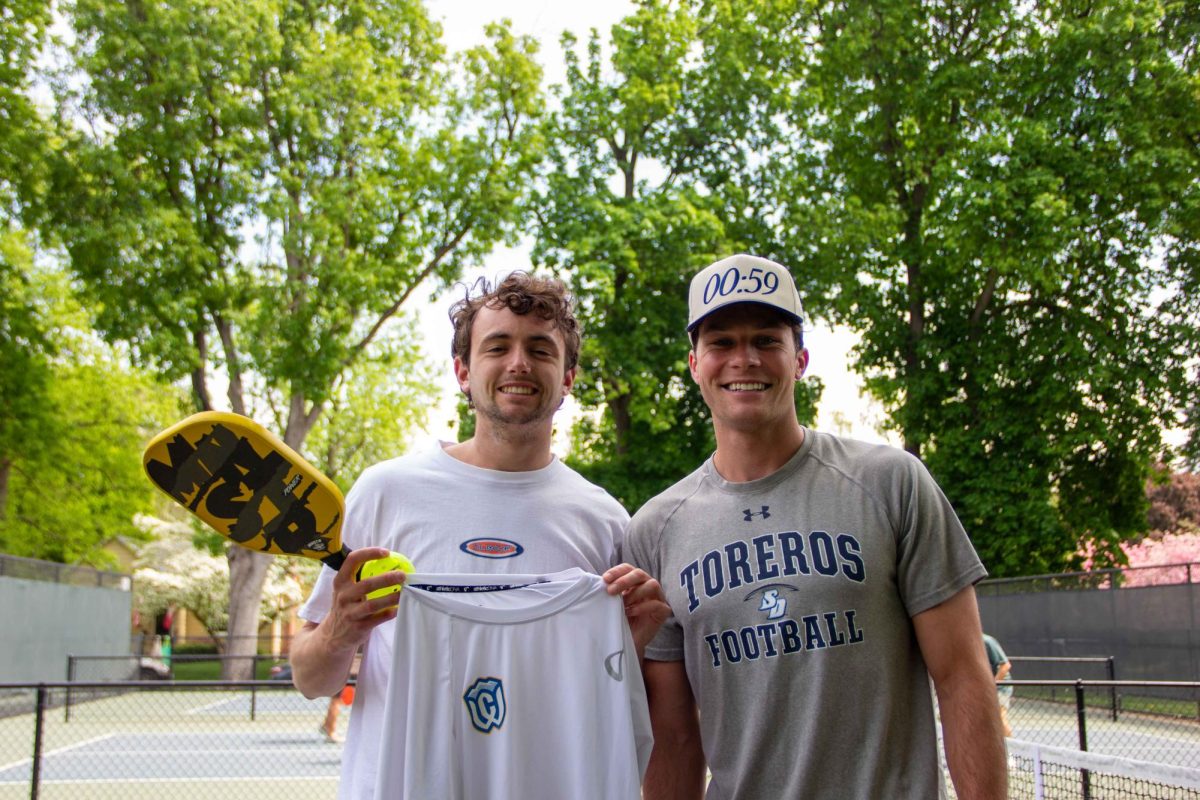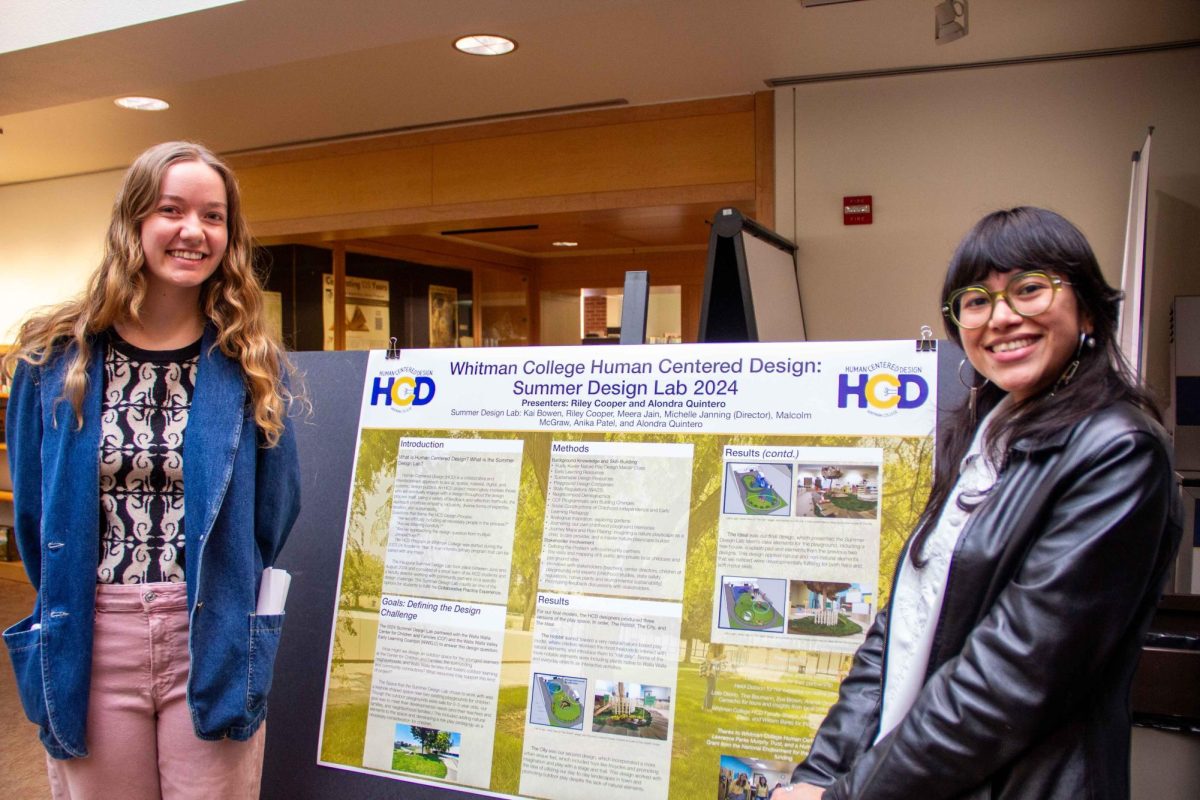Genjo Roshi, the abbot of the Chobo-ji Rinzai Zen Temple in Seattle, guided audience members through a conversation about the Noble Eightfold Path, meditation and Buddhism. Connecting guests from the college and the community, the talk was part of a longstanding partnership with the Walla Walla Dharma Sangha, a self-described non-sectarian Buddhist spiritual community.
Adam Kirtley, Whitman’s Interfaith Chaplain, spoke about the partnership and how it fosters collaboration across the region.
“This partnership with Walla Walla Dharma Sangha has been going on for about three years. They work closely with two Buddhist teachers who are located in the Pacific Northwest… Our partnership allows me to provide a large, accessible space that is not only open to Whitman students, but to the broader Walla Walla community,” Kirtley said.
Emphasizing Buddhist practice, Roshi began the talk with a guided meditation to set the tone of the presentation before imparting specific knowledge about Buddhism. Roshi focused on dukkha, a fundamental Buddhist concept that can roughly be translated into English as “suffering.”
“We must face collective suffering and respond to it with peace rather than more suffering… acceptance that there is no escape from certain pains and sicknesses is unavoidable…if we live long enough we must suffer the malaise of old age, we must die. The first noble truth is that there is no escape of dukkha,” Roshi said.
Roshi weaved modern events throughout his talk, and imparted his knowledge in bite-sized solutions and ways to change how people interact and think about the world. He made his teachings directly applicable to current socio-political conditions with direct calls to action. Roshi blended AI, tariffs, Trump and even Facebook into his discussion of the Noble Eightfold Path.
Arguing it is necessary to move beyond self-centeredness, Roshi discussed how reflecting on dukkha’s inevitability can lead to peace.
“Consciousness of death is the root of suffering and is the reason why we hold onto money, people and things… we are trying to protect ourselves from the inevitable but we can not, no matter the billions of dollars, so we turn impermanence to suffering. From the Buddhist perspective we have to recover or reclaim something beyond our egotistical view. If we can commune with something beyond ourselves we are again at peace with the world as it is,” said Roshi.
For Kirtley this type of knowledge is the reason why these talks are so important, and he explained how Buddhism shapes the world even for non-practicers.
“The teachings of Buddhism, I think, reflect such wisdom for difficult and complicated times. The idea of being fully present to the current moment and letting go of our attachment to particular outcomes is quite useful in moments of anxiety,” Kirtley said. “And we have so much about which to feel anxious these days. It’s worth noting that these basic teachings are present in many of the world’s religious traditions. Buddhism, though, is particularly invitational to non-Buddhists and folks who are non-religious.”
Mary-Anne Wilson, a Walla Walla resident who practices Buddhism, attended the talk and spoke about her takeaways. For Wilson, Roshi’s talk reflects how she hopes to engage with the world around her.
“I wasn’t always a Buddhist, and I am not sure I would call myself one now. I love to meditate and I loved listening to the abbot speak. I definitely practice a lot of Buddhism in my day,” Wilson said.
For Wilson, reflecting on Roshi’s talk brought a new focus to meditation and recalibrated her perspective of more innocuous parts of her day.
“I won’t look at my Facebook posts the same and hope the world can find the type of peace [Roshi] talked about…I don’t think I am great at meditating and that was some of the best meditation I have ever had, I hope I can talk to him more,” Wilson said.
Bridging ties between Buddhist communities in Walla Walla and on the West side of the state, the collaboration between the Walla Walla Dharma Sanga and the Chobo-ji Rinzai Zen Temple brought an evening of reflection and conversation to campus.





